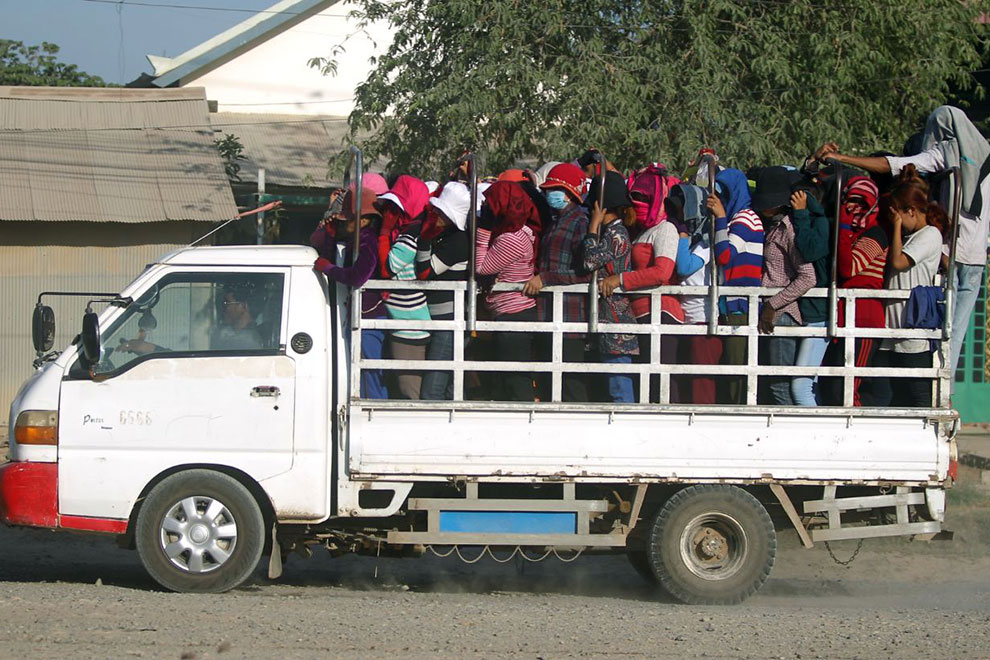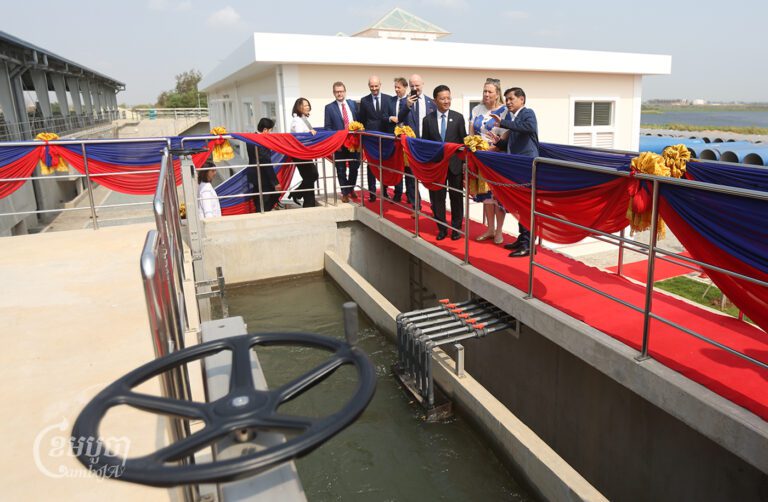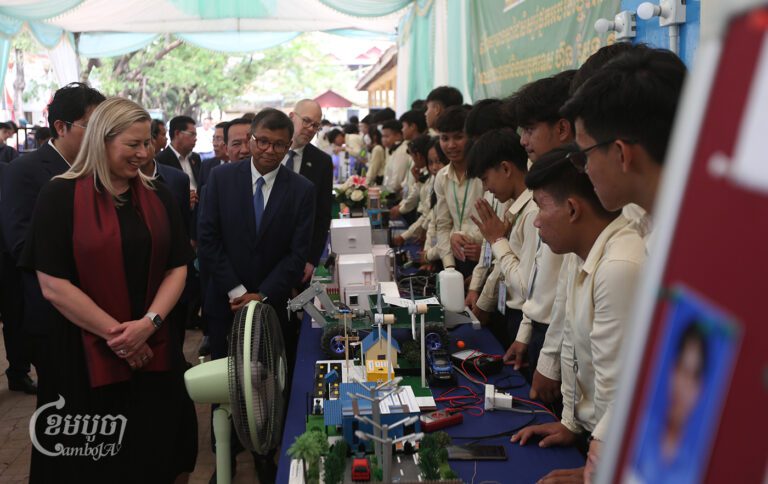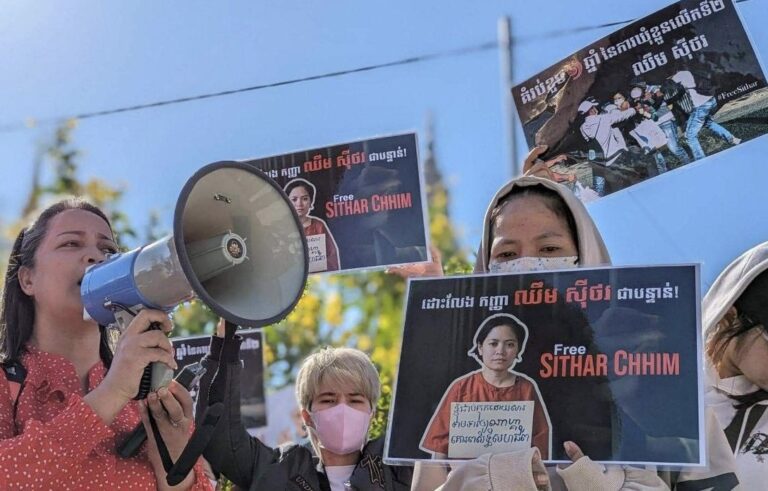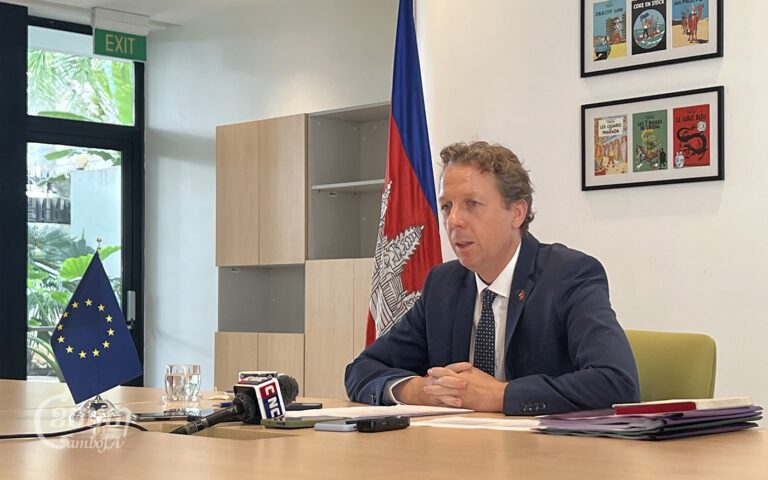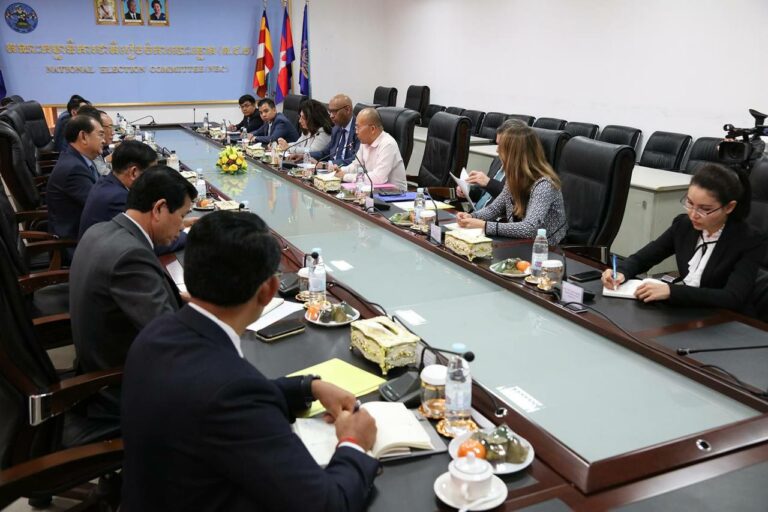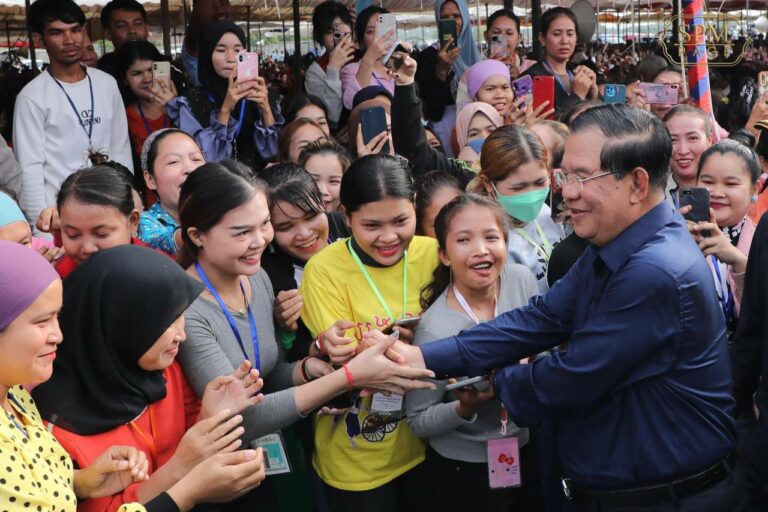Cambodian exporters face increased tariffs in August after the EU on Wednesday announced its decision to withdraw some duty-free trade with the country due to “serious and systematic” human rights violations.
According to a press release issued on Wednesday, standard EU tariffs will apply to selected garment and footwear products and all travel goods and sugar, amounting to about $1.1 billion in trade.
“The duration, scale and impact of Cambodia’s violations of the rights to political participation and to the freedoms of expression and association left the European Union with no other choice than to partially withdraw trade preferences,” European Commission vice president Josep Borell said in the press release.
“The European Union will not stand and watch as democracy is eroded, human rights curtailed, and free debate silenced. Today’s decision reflects our strong commitment to the Cambodian people, their rights, and the country’s sustainable development. For the trade preferences to be reinstated, the Cambodian authorities need to take the necessary measures.”
The EU was Cambodia’s largest trading partner in 2018, accounting for 45 percent of Cambodian exports. Almost 96 percent of the exports entered the EU market duty-free under the “Everything But Arms” (EBA) scheme.
The EU said the government must create the necessary conditions for the reestablishment of a credible political opposition, including by repealing or revising the Law on Political Parties and Law on Associations and Non-Governmental Organizations (Lango).
It added that it would continue to engage with Cambodian authorities to monitor the labor and human rights situation.
The Supreme Court dissolved the main opposition CNRP in November 2017 at the request of the government. The party’s president, Kem Sokha, is currently on trial for allegedly conspiring with a foreign power.
Collective Union of Movement of Workers president Pav Sina said he hoped there was still time for the government to change course and reverse the EU’s decision. Ath Thorn, president of Cambodian Labor Federation, also urged the government to engage with the EU to prevent the withdrawal.
“It will impact a lot of garment workers,” Thorn said.
Khon Sopart, 35, a garment worker at the E-Garment factory in Kandal province, said she was afraid there would be job losses in the industry.
“It’s difficult for us as workers — we depend on the factories giving us work,” Sopart said. “We may face unemployment. Maybe they will not invest in Cambodia. Thousands of workers face joblessness and there’s no work in our villages either.”
Chhul Sreymom, 38, a garment factory worker in Kampong Speu province, said the families of her and her colleagues had too much debt to repay.
“Many of us have debt repayments of $150 to $200 per month in our families,” Sreymom said. “If we don’t have a job, how could we pay it, and how will we survive?”
Human Rights Watch deputy Asia director Phil Robertson said the EU had “bent over backwards” to give Prime Minister Hun Sen the opportunity to reverse his clampdown on the political opposition, NGO activists, trade unionists and independent journalists.
“But over the past year he’s doubled down on his repressive tactics,” Robertson said in a statement on Wednesday. “The EU really had no choice but to suspend some trade preferences, in line with the rules requiring EBA beneficiary countries to respect international human rights and labor rights standards.”
Phay Siphan, the government’s spokesman, could not be reached for comment on Wednesday.
Foreign Affairs Ministry spokesman Koy Kuong said a statement on the EU’s decision would be issued soon.
Earlier this week, Hun Sen said any factory closures in the coming weeks would be due to coronavirus halting production at Chinese suppliers rather than any effect of the EU’s EBA decision.
Exiled opposition leader Sam Rainsy, meanwhile, told U.S. state-funded Radio Free Asia on Tuesday that Hun Sen should heed the EU’s demands for the sake of workers’ jobs.
“If he does, we will receive our freedom and the people and workers will keep their jobs,” Rainsy said.
Additional Reporting by Yon Sineat


